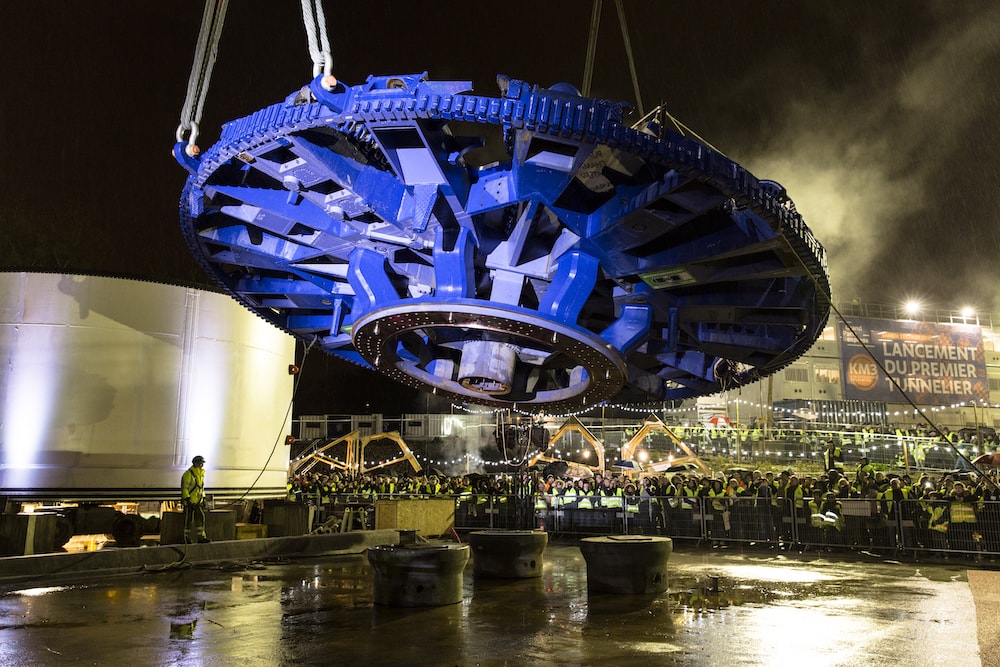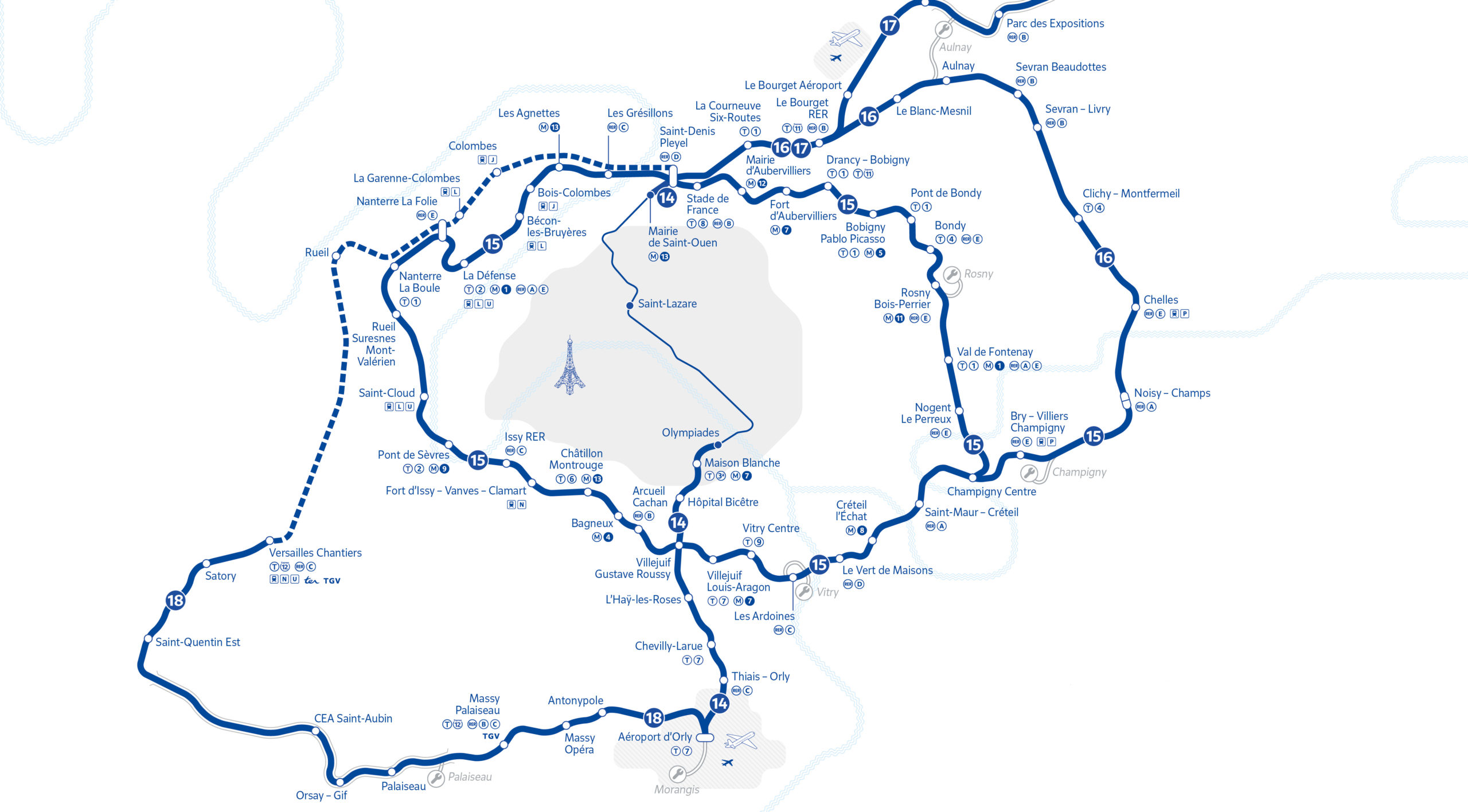
Grand Paris Express
2023 PRIZE
The 14th Veronica Rudge Green Prize in Urban Design has been awarded to the Grand Paris Express, a large-scale transit project currently being built in and around the Paris metropolitan area.
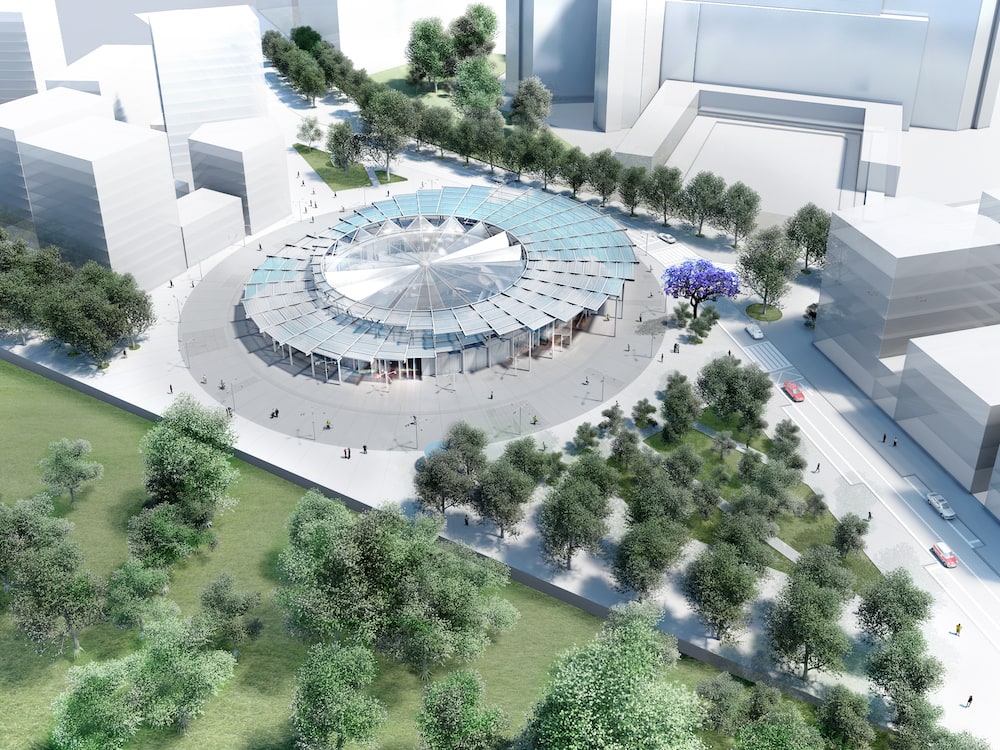
Through carefully articulated design interventions, the Grand Paris Express illustrates the potential for the planning and execution of mobility infrastructure to transform a city and its region.
With 68 new stations and 200 kilometers of additional tracks, as well as extensions of existing metro lines, the Grand Paris Express is currently the largest urban design project in Europe. Its four new lines will circle around the capital and provide connections with Paris’s three airports, developing neighborhoods, business districts, and research clusters. It will service more than 100 municipalities, 165,000 companies, and the daily transport of 2,000,000 commuters. Construction work began mid-June 2016 and is due to last until 2030.
About the Project
Project Goals
The overarching goals of the Grand Paris Express are to address the issue of the Paris monocentric model and to conceive a more open-minded design for urban mass transportation. It also strives to prioritize efficient forms of mobility by diminishing reliance on private automobiles and lowering the carbon footprint of this megalopolis. As a large-scale enterprise, the project aims to improve mobility patterns to make Paris more sustainable by creating rapid and nonpolluting connections between existing outskirts and new emerging developments. These connections, in turn, generate new centralities within the knowledge-based economy. The infrastructure layout is logical, with a signature external double loop partially overlapping the city center to provide connections between external sectors without crossing through the central area.
Architectural projects tied to the Grand Paris Express are fully independent, and are undertaken as collaborations between architects, designers, and artists, with individual sites addressing the specific conditions of each stakeholder. Every sector is committed to participatory processes in which the community considers issues of social inclusion and programming aspirations. And all projects adhere to an overall brief and principles, taking into account the public plaza and future programs developed at each location. The overall organization of urban projects is demonstrated through steps that ensure goals can be met on a realistic and well-defined timeline.
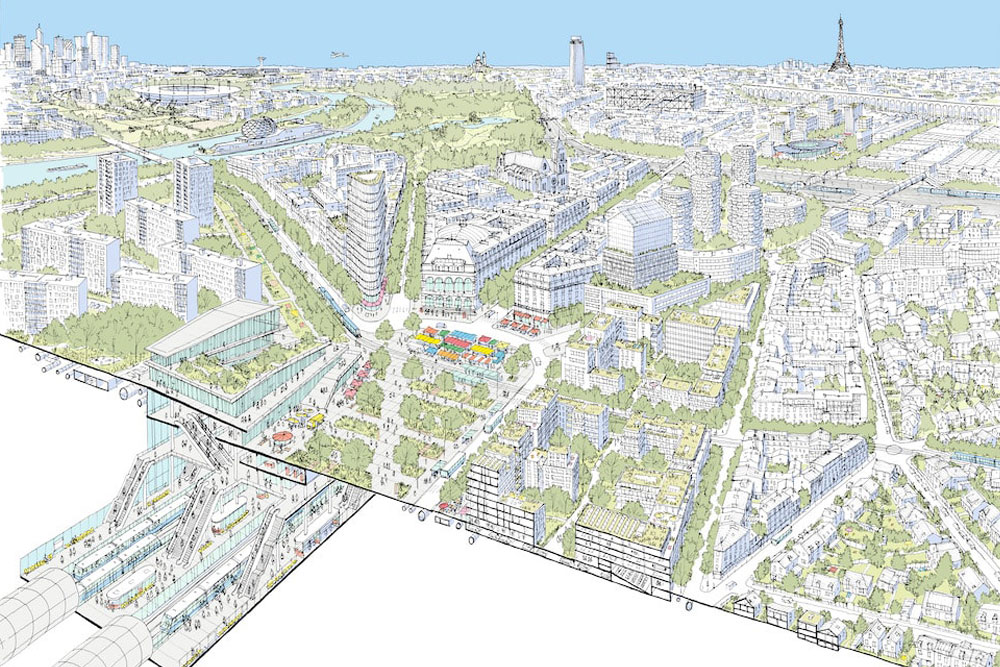
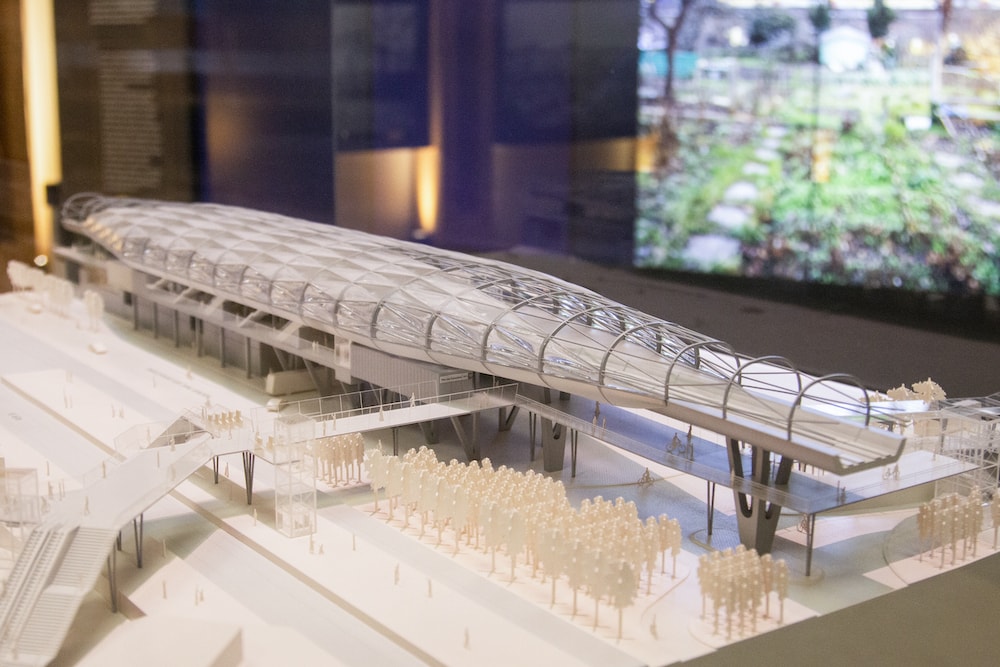
Expected Impact
The Grand Paris Express is expected to contribute particularly to the “banlieue” zones, or suburbs of Paris, and create room for new housing programs and economic initiatives. By employing environmental practices, the construction process will also encourage biodiversity and effectively merge sites into the built landscape. After being extracted during tunneling, for example, soil is recycled throughout the sites, and low-carbon concrete is used to reduce building emissions.
Infused with a dedication to experimentation, realized through constant negotiation between city officials, motivated designers, and mobilized citizens, and committed to educating other cities about implementation pathways, the Grand Paris Express sets a new standard for innovation in the field of urban design and the construction of sustainable territory.
